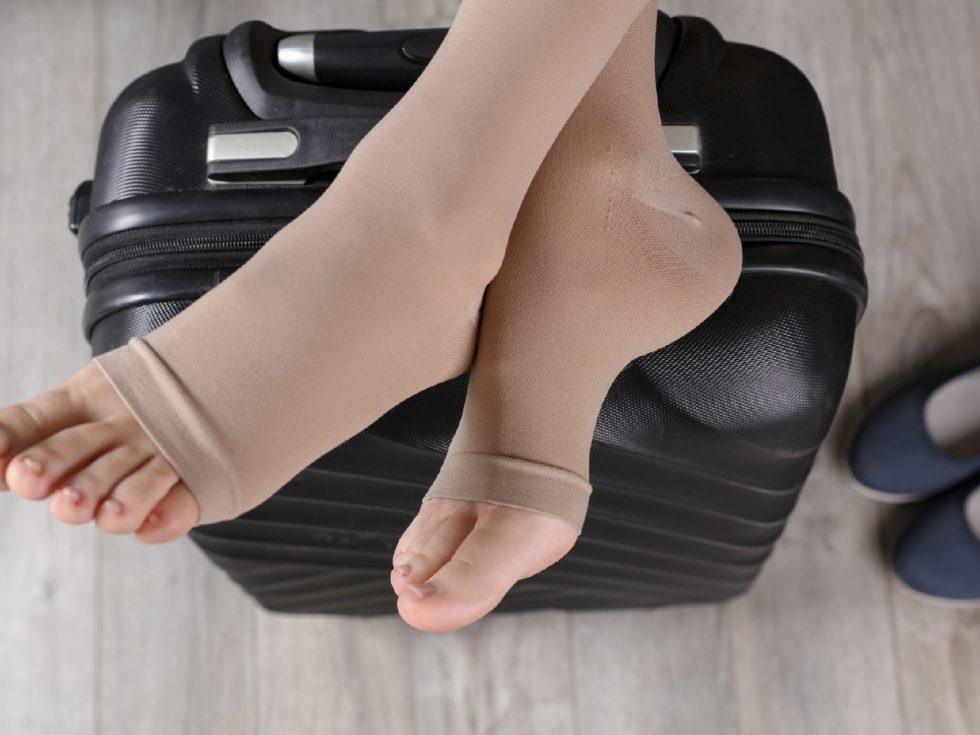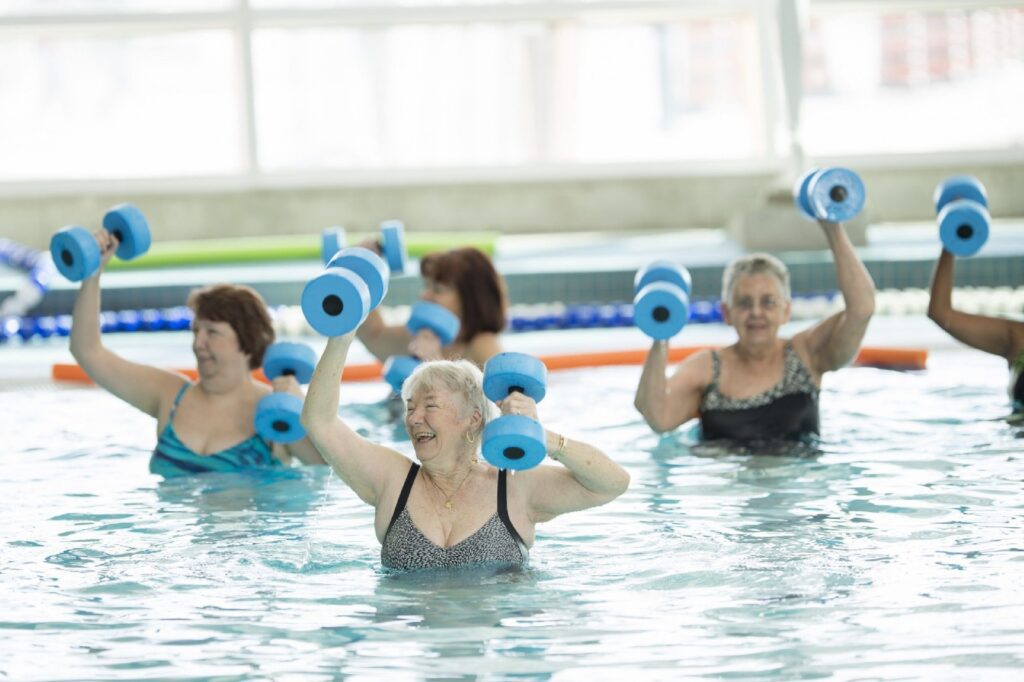Do Compression Socks Help with Leg Pain?
Author: StrideCare Internal Team

There’s an old saying that prevention is worth a pound of cure. When it comes to maintaining healthy legs, taking precautions to prevent vein disease and issues like varicose veins is preferable to needing treatments later. Some vein issues of the legs are hereditary, but some can be caused by lifestyle and activities. For example, retail and food service workers are susceptible to varicose veins and spider veins. Servers, cooks, bartenders, and hostesses spend long hours on their feet, increasing the risk of leg pain and vein problems. What is one prevention? Compression socks!
Why Wear Compression Socks?
Do you spend most of your job without a chance to rest, sit down, and put your feet up? This puts constant pressure on your legs, which makes the veins dilate. Legs may feel tired and achy both during and after work. You may experience swelling. This can even weaken the vein walls, eventually causing leaks. Spider veins and varicose veins can develop, which can cause damage to your legs if left untreated.
Compression socks and compression stockings support your legs by applying gentle pressure. This helps with circulation, swelling, and reduces leg pain like achiness, and tiredness. The right socks can prevent spider veins and varicose veins from occurring, or, if already present, from progressing and getting worse.
When to Wear Compression Socks?
- During long work shifts or times when you will be on your feet without rest for extended periods
- During long flights, compression socks help prevent blood clots that can occur from the changes in altitude and long periods of sitting
- When exercising, compression socks help reduce lactic acid build up and soreness by increasing blood flow
- To reduce swollen feet and diminished blood flow during pregnancy
- To keep varicose veins from getting worse. (If you suspect you have varicose veins, it’s best to consult a specialist, like the experts at Hamilton, about treatment options.)
- After surgery or any other period of bed rest to help prevent DVT aka deep vein thrombosis
5 Tips for Buying Compression Socks

Compression socks are a great addition to your work uniform! From classic black to fun prints and patterns, you are sure to find a pair that matches your personality and needs. When shopping, here is what to look for:
- They should be snug, but not too tight.
- They should be tighter around the ankle, and gradually loosen as it goes up the leg.
- Flat seams will be more comfortable inside of your work shoes.
- Compression socks come in a variety of compression levels. A lower compression may work for you, but consult with your doctor if you need help, or suspect you have varicose veins. Higher compression levels, if needed, are often only available through prescription.
- Consult a physician if you have any medical conditions that would prevent you from wearing compression socks, such as leg nerve damage or a skin infection.
- Putting on tight compression socks and compression stockings can be a bit of a challenge. Try wearing rubber gloves to help ease them up or putting some corn starch on your leg. Again, they should feel snug but not painfully tight, and they should fit smoothly on your leg.
More Ways to Help Prevent Leg Pain
In addition to compression socks, people who spend all day on their feet like retail, servers and other food service workers can follow these tips to help prevent leg pain from varicose veins and other vein problems:
- Take a break when you can and elevate your legs.
- Wear comfortable and supportive shoes. Avoid high heels.
- Periodically do calf raises.
- Lose weight, if necessary, to avoid added stress on your legs.
- Exercise! Swimming and water aerobics are great choices.

Schedule an Appointment with StrideCare
Working all day on your feet can be taxing on your body. Are compression socks and other measures not bringing relief to your tired, achy, swollen, and heavy feeling legs? Do you think you are already experiencing varicose veins and other vein damage? Call the highly regarded professionals at StrideCare They can diagnose vein disease and offer non- invasive treatment options to help you love your legs again.
Prior to starting any new treatment or questions regarding a medical condition, always seek the advice of your doctor or other qualified health provider. This information is not a substitute for professional medical advice.
StrideCare serves the South Texas area including Houston, San Antonio, Austin, Round Rock, Bastrop, Brushy Creek, Cedar Park, Converse, Georgetown, Hutto, Kyle, Leander, Marble Falls, New Braunfels, Pasadena, Pearland, Pflugerville, San Marcos, Schertz, Houston, Sugar Land, Katy, Webster, Bay City, Clear Lake, Lake Jackson, The Woodlands, Universal City, Spring, Kingwood, Stafford, Conroe, Texas City, Cypress, League City, Bellaire, and more.


